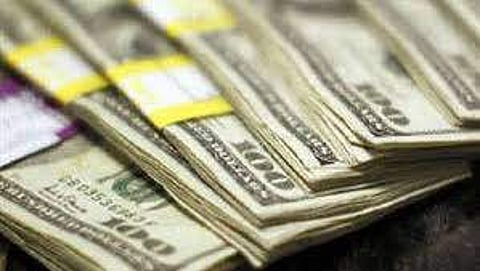

Amidst the universal condemnation of Russia’s invasion of the Ukraine, and the derisive support for the young President Volodymyr Zelenskyy, is a low key but firm reiteration by the US and NATO countries there will be no boots on the ground; nor will the West get directly involved with air strikes or forcing a no-fly zone over Ukraine. The fear of triggering a world war is real, and the learning from the disastrous war in Afghanistan is too fresh to make the same mistake again.
Instead the course opted for by the western coalition is the imposition of a raft of punishing economic sanctions on Russia. Economic sanctions are not new. But what the world is seeing for the first time is economic retaliation with precision and great coordination. The object is to damage the Russian economy to such a point that it becomes difficult for the Kremlin to conduct the war. Will the Western allies succeed?
Withering Sanctions
The target is the Russian financial system. After a few days of hesitation, Russia’s two largest banks, Sberbank and VTB, have been cut off from the world’s strongest reserve, the dollar. Russian banks have also been removed from SWIFT, the global messaging and payments system, making it difficult for Russian institutions to process international financial transactions.
The Russian Central Bank too has been hobbled by freezing its overseas assets. After the Crimea annexation in 2014, Russia had tried to shore its financial system by building a huge reserve of $630 billion. However, nearly half of these, parked in paper assets abroad, are now out of bounds. A wide gamut of restrictions too have been imposed. Imports to upgrade Russian oil refineries or spare parts to maintain aircraft are all off the list. Private multinational companies are also working in tandem. Oil behemoth BP has exited its 20% holdings in Russian company Rosneft. Apple, Disney and Ford said they will be pulling back. Boeing has suspended major operations in Moscow.
The sanctions have already begun to impact the man on the street. Russian credit cards are now useless for international payments. Job losses are beginning to mount. Ikea for starters has shut operations in Russia leaving 15,000 Russians jobless.
While the cost of the war will hit those at the bottom of the pyramid the worst, the immediate target is to make Putin, and his immediate circle pay. Vladimir Putin, his foreign minister Sergei Lavrov and Kremlin chief spokesperson Dmitri Peskov are among those whose foreign assets have been frozen. The next layer - the super-rich and the crony capitalists called the oligarchs, those who have made billions based on their proximity with the Kremlin - are also on the hit list.
Some are big names like Alisher Usmanov, founder of Russian mining company Metalloinvest, and the billionaire brothers Boris and Arkady Rotenberg. They are finding their yachts and jets confiscated and their access to the good life in the casinos of Monaco denied to them.
The war on the ground
The sanctions are biting. Analysts at Goldman Sachs have cut the investment bank’s forecast for Russian gross domestic product this year from 2% growth to a 7% decline. The ruble has fallen by over 30% and the country’s credit rating has been downgraded to junk status by S&P Global. But can all this stop the war?
History shows sanctions impose pain, but rarely work if the goal is regime change or forcing policy changes. North Korea has faced some of the most stringent sanctions over decades, and the country hasn’t given up its nuclear weapons. Russia had earlier faced similar but less stringent sanctions - ban on technology for oil and gas exploration, travel restrictions, etc - after it forcibly annexed the Crimean peninsula in 2014, but Putin rode it out.
The Kremlin has alternatives. China has become a close ally, and the two are keen to work on building alternative financial systems. For instance, though the SWIFT messaging system is closed to Russia now, there is the option of using China’s Cross-Border Interbank Payment System, or CIPS.
Two main factors will influence the outcome of the war. First, the extent of dissent at home in Russia. Protests are being violently suppressed and Russians over years have accepted a state of semi-dictatorship. However, war will bring immense hardship - shortages and hyper-inflation as the ruble plummets. Second, Putin’s fortunes will depend on the resistance in Ukraine. The cities are likely to fall, but if Ukraine’s army and volunteer militia extend the fight with a long, shifting insurgency, Ukraine may become Putin’s Waterloo.
One thing is for sure - Europe will never be the same again. A victorious Putin will next go after the Baltic states and push back the borders of Europe. If defeated, it will be regime change in Moscow, which will at best be left a regional satrap. The deciding factor will be how hard and long the Ukrainians are willing to fight.
Impact on the street
The sanctions have already begun to impact the man on the street. Russian credit cards are now useless for international payments. Job losses are beginning to mount. Ikea for starters has shut operations in Russia.
7%
Goldman Sachs have cut the investment bank’s forecast for Russian gross domestic product this year from 2% growth to a 7% decline.